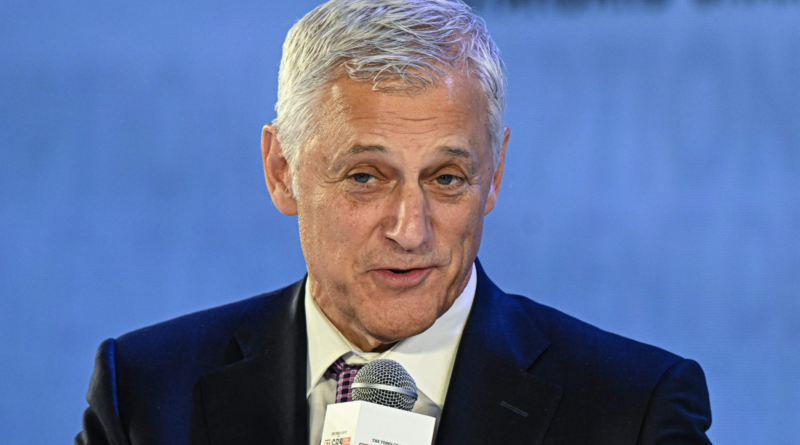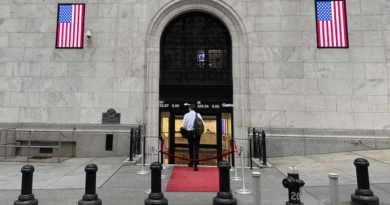Millionaire banking boss says ESG investing is good for business: ‘If that makes me woke, shoot me’
Right-leaning populists and politicians, and Elon Musk, are mounting a backlash against businesses that look beyond profits—but Standard Chartered’s CEO Bill Winters doesn’t care.
In his eyes, Environmental, Social and Governance (ESG) investing is not only good for the health of the world—but also for business.
“I mean, I do want to wake up one day and have a planet so if that makes me woke, shoot me,” the banking boss told CNBC.
“This is not philanthropy, this is not political wokeness,” added Winters, who took home $9.9 million last year. “This is do the right thing for the planet—do the right thing for your business. That’s what we’ve been doing.”
It’s why Winters insisted that the 170-year-old British banking giant is constantly “refining” its sustainability strategy, with aims to reach net-zero carbon emissions within its own operations by 2025 and net zero in its financed emissions by 2050.
“We said one, we’re going to be thought leaders and action leaders in terms of policies around net zero and our clients have completely engaged with us. We’ve seen no backing away from that at all,” Winters said.
“And second, we said we’re going to build a business to support our clients, and that business made $720 million last year, and we said it is going to make $1 billion next year. That’s not nothing. It’s a good business for us.”
Read more: Why ESG assets could hit $50 trillion despite attacks on ‘woke capitalism’
The proof is in the pudding: The London-based lender reported better-than-expected fourth-quarter results and has just announced said it would start a $1 billion share buyback imminently.
“We are upgrading our expectations, and are now targeting a return on tangible equity approaching 10% in 2023, to exceed 11% in 2024, and to continue to grow thereafter,” Winters said in the statement.
ESG critics
Winters’ comments come at a time when ESG investments have become a hotly debated issue.
In U.S. politics, for example, conservatives have been using the term “woke capitalism” to refer to institutions that use ESG criteria to limit funding to industries like fossil fuels.
In 2023 alone, Republican lawmakers in 37 states introduced a staggering 165 pieces of anti-ESG legislation, according to a report from the strategic research and advisory firm Pleiades Strategy.
“Obviously, the political environment in the U.S. is toxic, times 10—and so people are going quiet,” Winters said, reflecting on the current political tension.
“But one of the stats that I love is the biggest renewable power center in the United States is the state of Texas, right? Which is the state that has been leading the charge against pension fund managers who have a ‘woke’ agenda or whatever.”
Outside of Congress, business leaders have been weighing in on the topic for years now.
Tariq Fancy famously rocked the investment world when he penned the four-part essay, “The Secret Diary of a Sustainable Investor” in 2021.
Less than two years after being appointed as BlackRock first chief investment officer for sustainable investing, Fancy was now calling sustainable investing “a dangerous placebo” that prevents real change on environmental and social issues.
Even in the U.K., HSBC Asset Management’s former head of responsible investing Stuart Kirk was forced to quit his top job in 2022 after accusing central bankers and policymakers of overstating the financial risks of climate change in an attempt to “out-hyperbole the next guy”.
More recently, Elon Musk outright labeled ESG a “scam”. His criticism came shortly after Tesla got kicked out of the S&P 500 ESG index.
Of course, not all is well in ESG land. Greenwashing and ESG fraud are rampant—but ultimately, if ESG goals are abandoned altogether, businesses may not be able to place tangible importance on sustainability.
As Peter Drucker would say, “You can’t improve what you don’t measure.”



